Benjamin Franklin, 1722

Technology’s advance expands our fundamental rights and gives us new ones.
And no right is so fundamental as the freedom of thought.
Benjamin Franklin published this statement in 1722, as a teenager working as a printer and journalist, nearly 70 years before the US Bill of Rights was ratified. His words are now displayed on the wall in the US Capitol Building. Freedom of speech has always been recognized as a threat to tyrants, and a right worth protecting. (The Soviet Union’s tight lock on publishing and copy machines produced one of English’s few Russian borrowings: samizdat, or self-published material.) Freedom of thought was too obvious to be included in the US Bill of Rights, but by the middle of the 20th century, it was under attack from violent collectivist ideologies. In 1949 George Orwell’s dystopian novel 1984 reflected the dark trend, giving us terms like wrongthink, thought crime, and the Thought Police. Already in 1948, Article 18 of the Universal Declaration of Human Rights declared:
This statement was reiterated in Article 10 of the EU Charter of Fundamental Rights and Article 9 of the European Convention on Human Rights.

Access to compute is as empowering as access to the printing press (now the Internet, which in 2016 the United Nations declared to be a fundamental human right). As the press amplifies speech, so compute augments thought. As Steve Jobs famously said, “For me, a computer has always been a bicycle of the mind." Authoritarians thus fear the challenge of citizens empowered by the internet and computing power, now including artificial intelligence (AI), and want to control access. Benevolent but paternalistic governments want to protect citizens from AI-powered bad actors by keeping AI tools out of bad actors’ hands. But AI-empowered citizens can look after themselves, and they have that right.
Several actors, including the current biggest AI companies, other Big Tech companies, AI safety activists and organizations, and government organizations, are trying to regulate, restrict, and even criminalize, current AI models and the computing power used to create them. These actors have different underlying motives, some well-intentioned, some seeking commercial advantage and regulatory capture, and some seeking power, but they share an ideology of paternalism. Because AI could be used for nefarious purposes, they say access should be restricted to a limited trusted circle, so as to protect the rest of us. We consider this not merely inequitable, but dangerous. Parties with such advantage are bound to abuse it, and ordinary people would not be able to compete or defend themselves.
Both the United States and the European Union have already begun regulating computing power. President Biden’s Executive Order 14110 regulates AI in numerous ways based on several criteria. One of these criteria is the computing power used to train an AI. EO 14110 sets three thresholds: 1026 FLOPs for any AI model, 1023 FLOPs for an AI model trained primarily on biological sequence data, and 1020 FLOPS for any computing cluster. The EU’s AI Act sets a single threshold of 1025 FLOPs. In both the US and EU, these compute limits can be changed easily, with bureaucratic rather than legislative action. This is only the beginning.
There are other examples, such as limitations on the usage of encryption. Many major countries restrict use of encryption, such as Singapore, China, India, and Russia. The right to compute is here intertwined with the right to privacy.

If an individual’s access to modern technology is limited, so are their rights. Imagine the absurdity of recognizing the freedom of speech, but only for one’s own unaided voice, denying the rights to publish or use telephones. Imagine the weakness and vulnerability of individuals denied their rights of speech and thought, at the mercy of those “trustworthy” enough to be granted such power. Imagine trying to work productively in the Information Age, falling increasingly behind those with access to compute.
2023-09-23
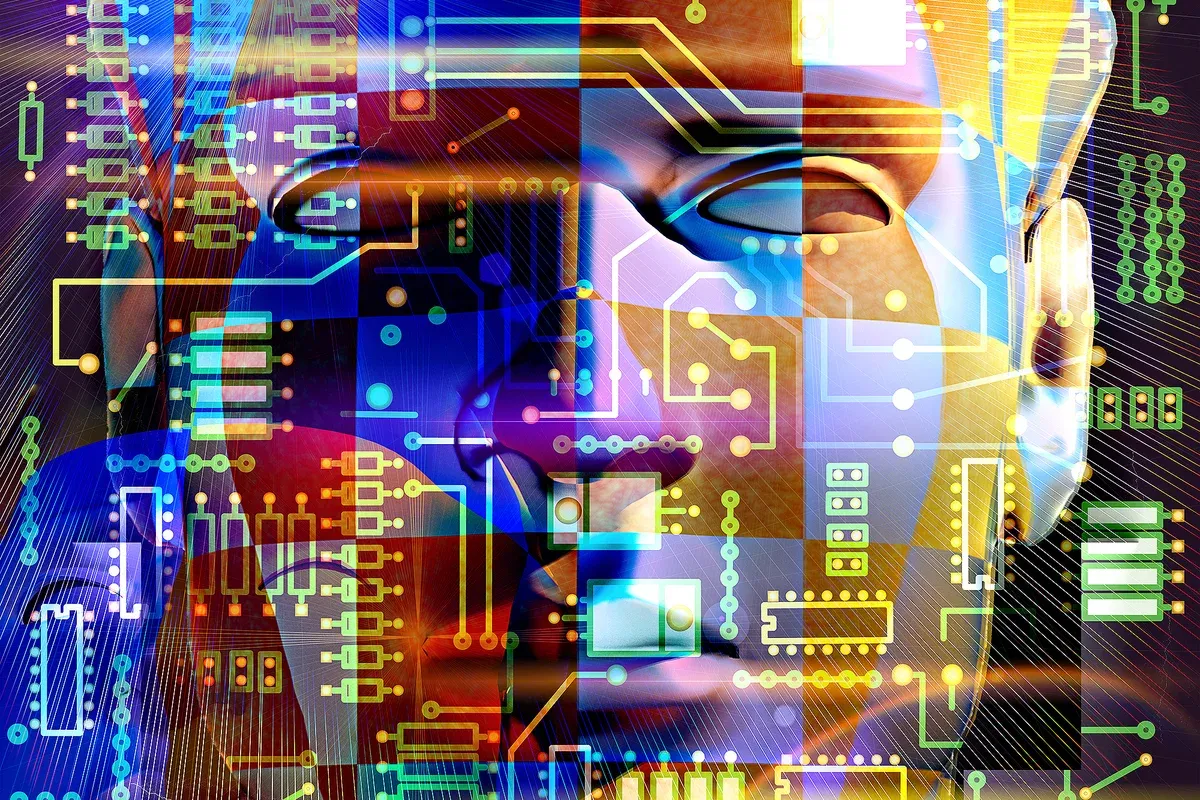
Does the First Amendment Confer a 'Right to Compute'? The Future of AI May Depend on It
By John Villasenor
Read more on this topic at Scientific American ›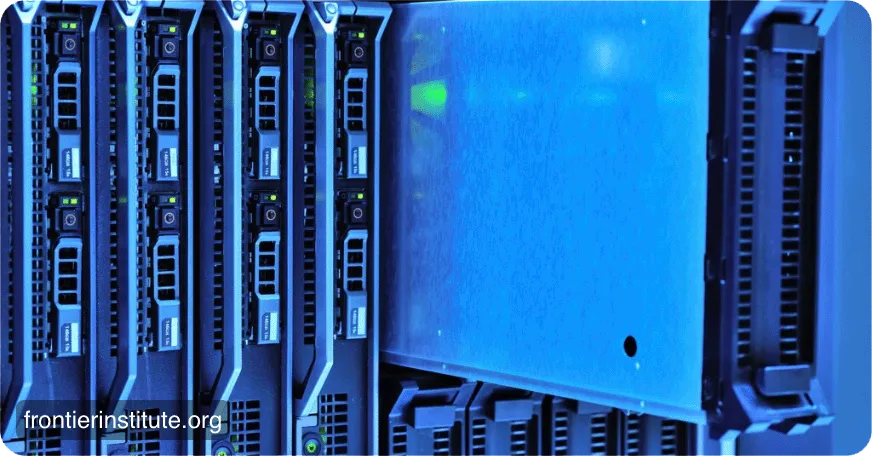
2025-02-04
The Frontier Institute offered support for Montana SB 212, the Right to Compute Act, a bill that follows Frontier Institute’s recommendations to create a new state policy framework for regulating the private use of emerging computational technologies like Artificial Intelligence, Cloud Computing, and Data Centers.
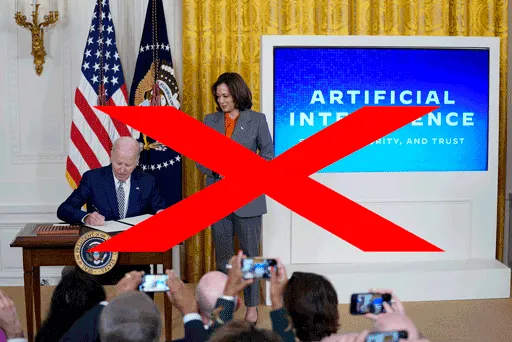
2025-02-03
Advocates for slowing down the artificial intelligence regulation drive are cheering on legislation in Montana and New Hampshire that would establish a right to compute.

2025-01-24
Montana state Sen. Daniel Zolnikov officially introduced SB 212, the Right To Compute Act, to ensure Montanans’ rights to free expression and property are protected in the 21st century, in addition to helping position Montana as a world-class destination for AI and Data Center investment.
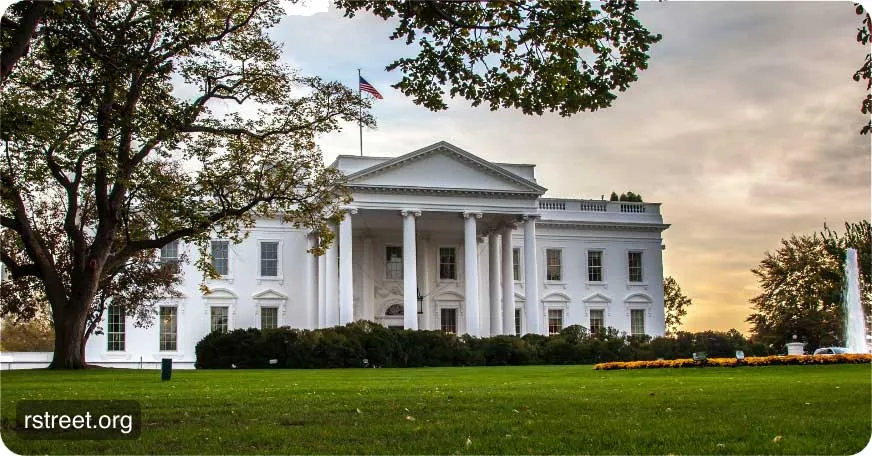
2025-01-23
With this new EO, the Trump administration has rightly hit the reset button on artificial intelligence policy in the executive branch and helped steer the U.S. back toward a more prudent policy paradigm for AI.

2025-01-22
Sign this petition calling on Congress and all state legislatures to propose a constitutional amendment protecting Americans' right to compute!

2025-01-02
Texas has formally introduced a massive and complex AI law, HB 1709, the Texas Responsible AI Governance Act (TRAIGA)—a more onerous regulation than California's SB 1047: more requirements and broader liability on more industry participants.
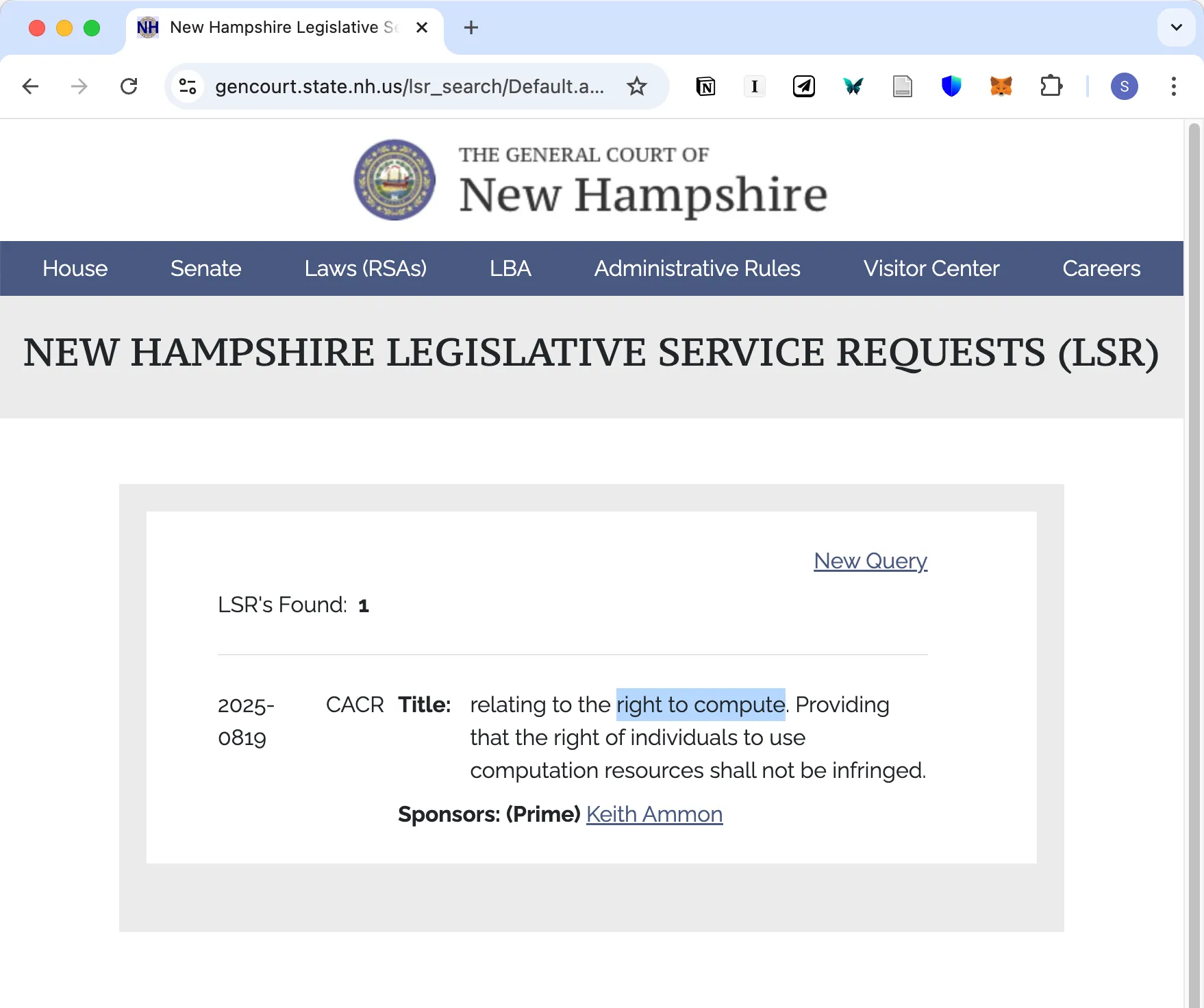
2024-12-19
A Right to Compute amendment to the New Hampshire state constitution was submitted by state representative Keith Ammon, who has a history of supporting emerging technologies like blockchain, flying cars, and nuclear power.

2024-11-14
Trump is likely to rescind Biden's Executive Order 14110, sending it join California's SB-1047 in the regulation afterlife.
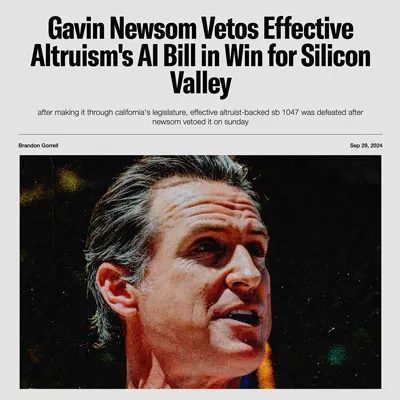
2024-09-29
Gavin Newsom vetoed SB 1047, California’s high-profile AI regulation bill.

2024-07-28
Peter Thiel speaks on the Triggernometry show about a range of topics, including prioritizing X-risks.

2024-05-28
In this clip from an episode of The Ben & Marc Show, Ben Horowitz and Marc Andreessen discuss what would happen without any AI regulation.
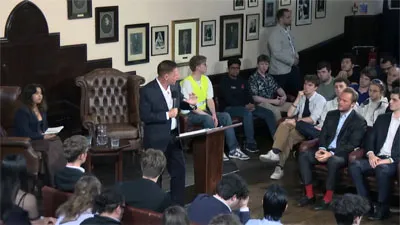
2024-05-08
Peter Thiel says there is a totalitarian Luddite ideology being pushed by the RAND Corporation which seeks to implement global compute governance: the regulation of all computers by a global government

2024-05-03
California Congressman Jay Obernolte, the House’s AI Task Force leader, says regulation can’t be rushed. ' AI is a tool. It is not an outcome itself. And we already regulate outcomes.'

2024-02-02
An epic debate between Guillaume Verdon and Connor Leahy, prominent figures in the e/acc-vs-decel question.

2024-01-16
Fear is instrumental for us to give up control.

2024-01-14
Some of the signatories on that ridiculous Pause Giant AI Experiments letter certainly raised eyebrows at the time, starting with Elon and Woz.

2024-01-12
Claims that AI safety orgs have not tried to ban *current* open-source LLMs are false.

2024-01-11
Garry Kasparov: AI is a tool, like a telescope that extends our thinking.

2023-12-28
Short clip from a longer podcast 'Safety in Numbers: Keeping AI Open' about a misconception in AI regulation. a16z General Partner Anjney Midha speaks with Arthur Mensch, co-founder of Mistral.

2023-12-08
New PirateWires episode gathers the champions of freedom of speech (Mike Solana), Freedom of exchange (Balaji), and freedom of compute (Beff Jezos = Guillaume Verdon).
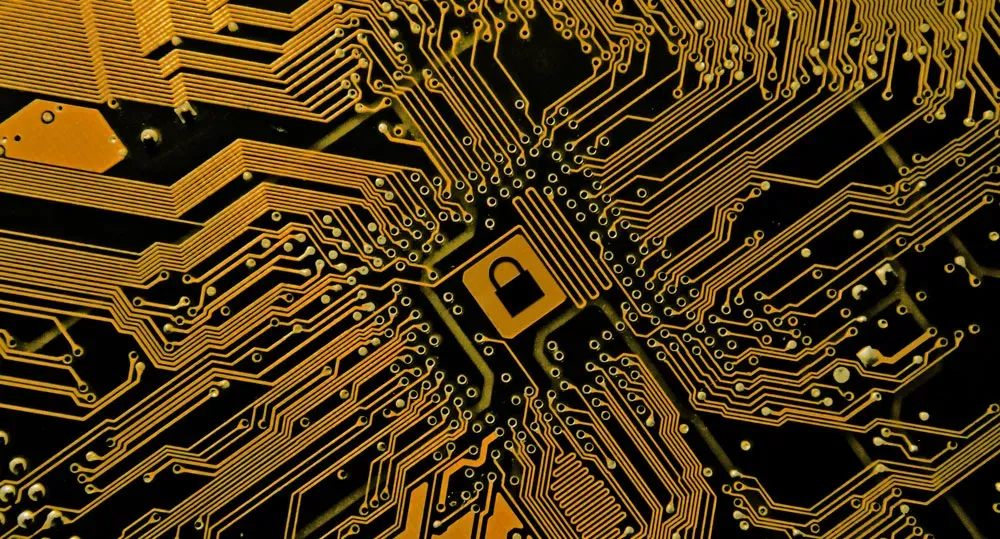
2022-08-01
Cory Doctorow: Today's tech giants have not invented an interop-proof computer. They've invented laws that make interoperability illegal unless they give permission for it.

2019-10-21
Freedom of thought stands at a critical crossroads. Technological and psychological advances could be used to promote free thought. They could shield our inner worlds, reduce our mental biases, and create new spaces for thought. Yet states and corporations are forging these advances into weapons that restrict what we think.